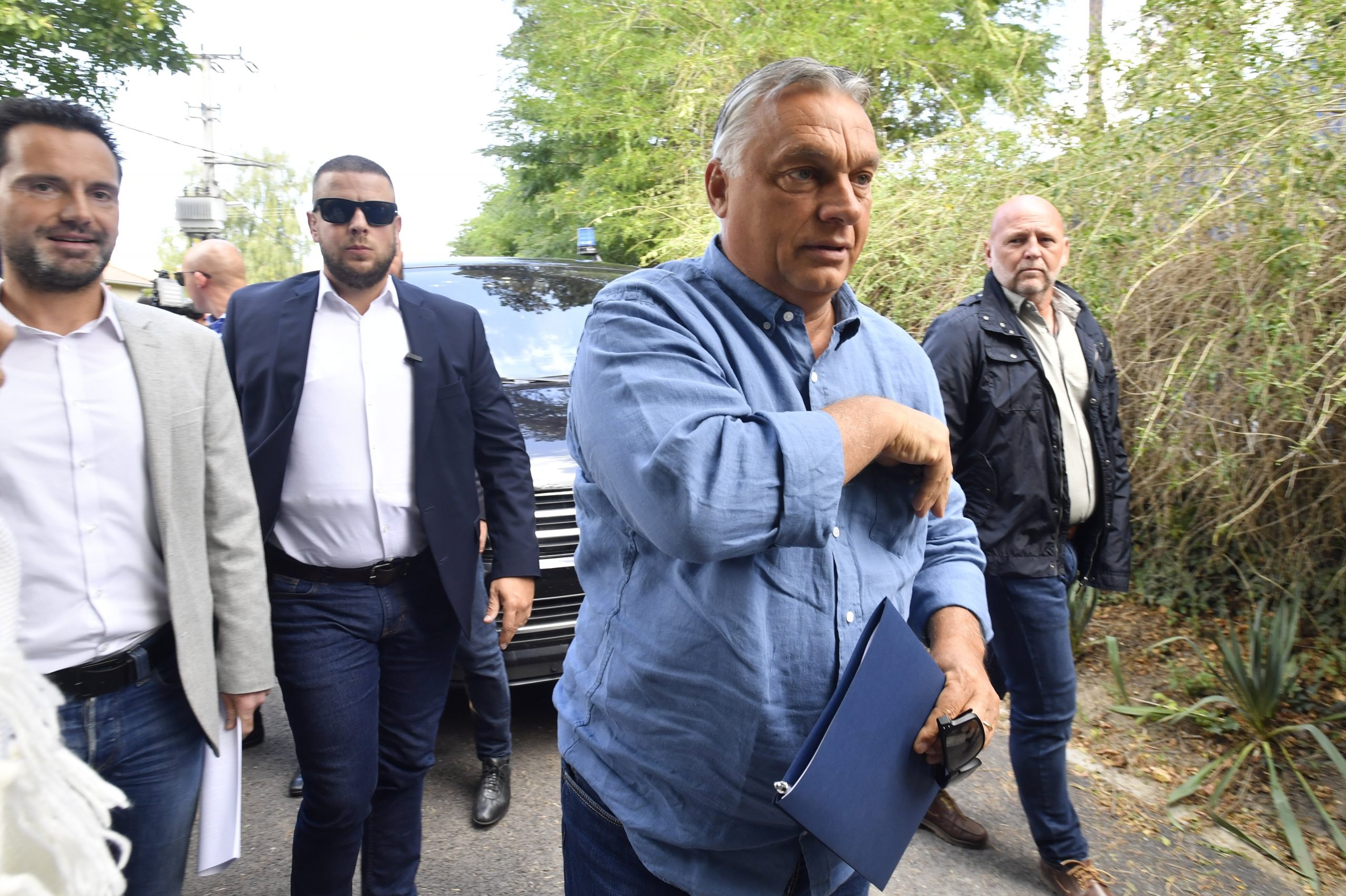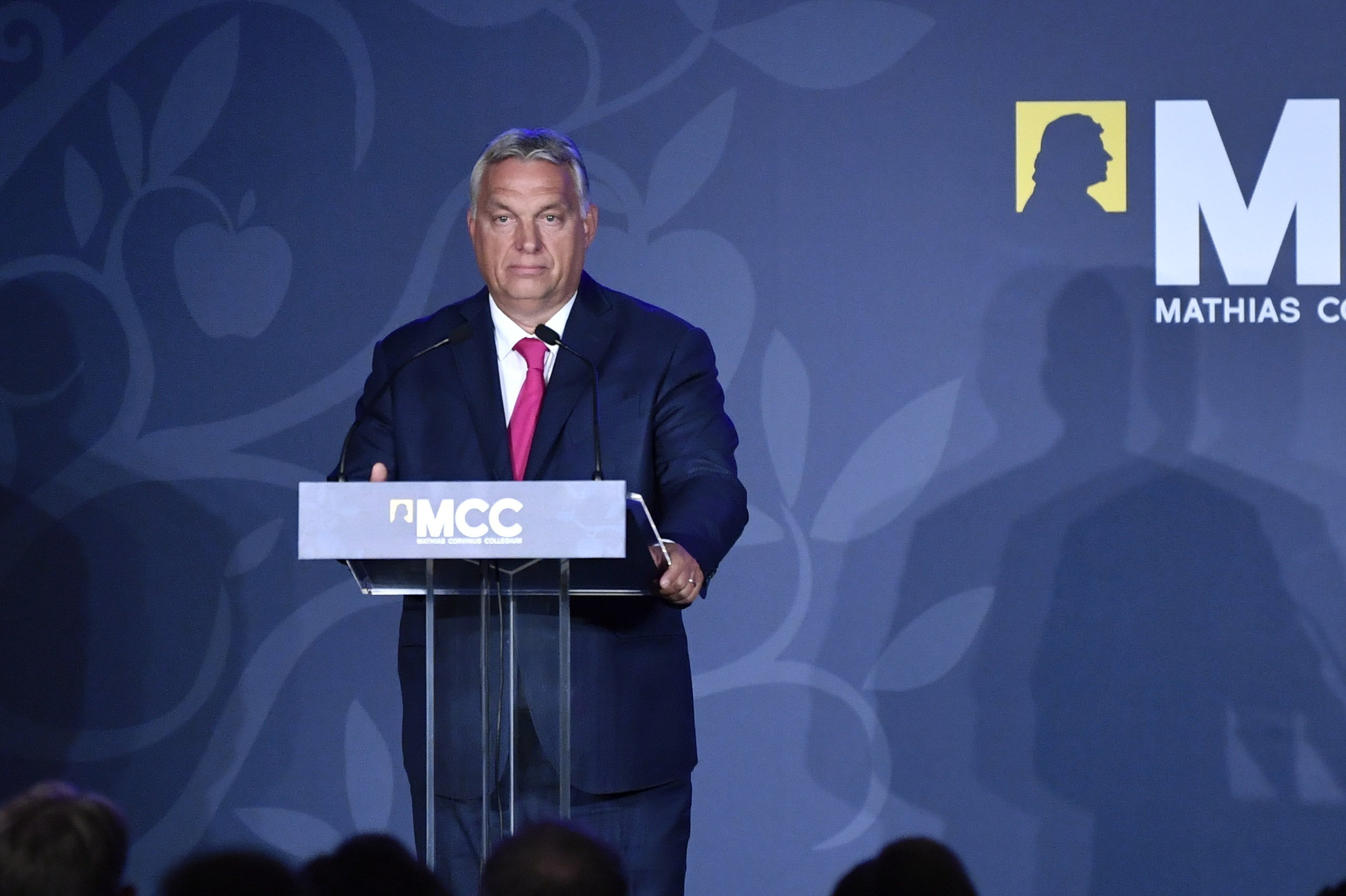
"Our strategy is: we win, they lose," PM Orbán quoted former U.S. President Ronald Reagan regarding the upcoming Hungarian parliamentary elections in 2022 at this year's Civic Picnic in Kötcse.Continue reading

“Hungarians have never lost sight of their mission,” Prime Minister Viktor Orbán declared in a speech on Thursday at Budapest’s Mathias Corvinus Collegium.
Orbán said the 21st century belonged to Asia though Europe was proudly bearing “its spiritual primacy”. The United States, meanwhile, was used to global economic and military leadership role, he added.
He said the West had bestrode the globe for 400 years with a sense of exceptionalism and a mission which gave it inspiration and self-confidence. But at the start of the 21st century Western civilisation had started to confront serious challenges, he added.
A “woke” neo-Marxism, he said, was taking hold in America, while Europe was beset by a Muslim demographic, political and economic tide, creating a new state of affairs in France, Italy, the Netherlands, Belgium, Germany and Austria.
The West, said Orbán, was not up to the task of providing adequate political solutions to such problems.
“We central Europeans, in short, believe that the West has gradually lost faith in its own mission,” he said. It no longer seeks meaning in its own history but instead reinterprets or obliterates certain periods with a sense of shame, while failing to discover alternatives.
Recalling Karl Popper’s ideas on the “open society”, Orbán insisted that Popper saw any special value or historical mission attached to the nation or political community as open society’s enemy. This, he said, was perhaps the most influential and destructive Western kind of thinking after the second world war.
The concept of an open society robbed the West of its belief in its own values and historical mission, the prime minister said. Amid the current “Muslim tide” and the rise of Asia, the West is unable to confront its own mission, he added.
Orbán argued that central Europeans believed that, without a mission, they were destined to failure. He said that historically, Hungarians had taken on the mission of ensuring the coexistence and prosperity of the peoples living in the Carpathian Basin and to make sure it was not enfolded in the political and cultural framework of the German or Ottoman world.
He noted the Tatar invasions, Muslim invasions in the Middle Ages, the Nazi occupation, the Soviet occupation and the anti-Christian nature of the decades of communism. The protection of the Carpathian Basin and Christianity was a mission of national, central European and even European significance, he said.
The prime minister said Christianity was about faith and the ways of life inspired and formed by faith; Christian democracy was about ways of life that had grown out of societies imbued with the Christian faith, he said.
Accordingly, central Europe, he said, had a different outlook on life and its esteem of the nation.
Orbán said western European leaders saw differences of opinion over gender, migration and national sovereignty as developmental backwardness. “But they don’t get that we’re talking about a deep cultural, geopolitical and philosophical difference.”
Orbán said Hungarians saw their work as a personal profession on which their life depended, “bringing us together towards a common fate”, providing “endless self-esteem”. Addressing the students, he said the duty of a spiritual people was to understand this mission and to reflect on it and its changing forms in public affairs, he said.
Featured photo by Zoltán Máthé/MTI